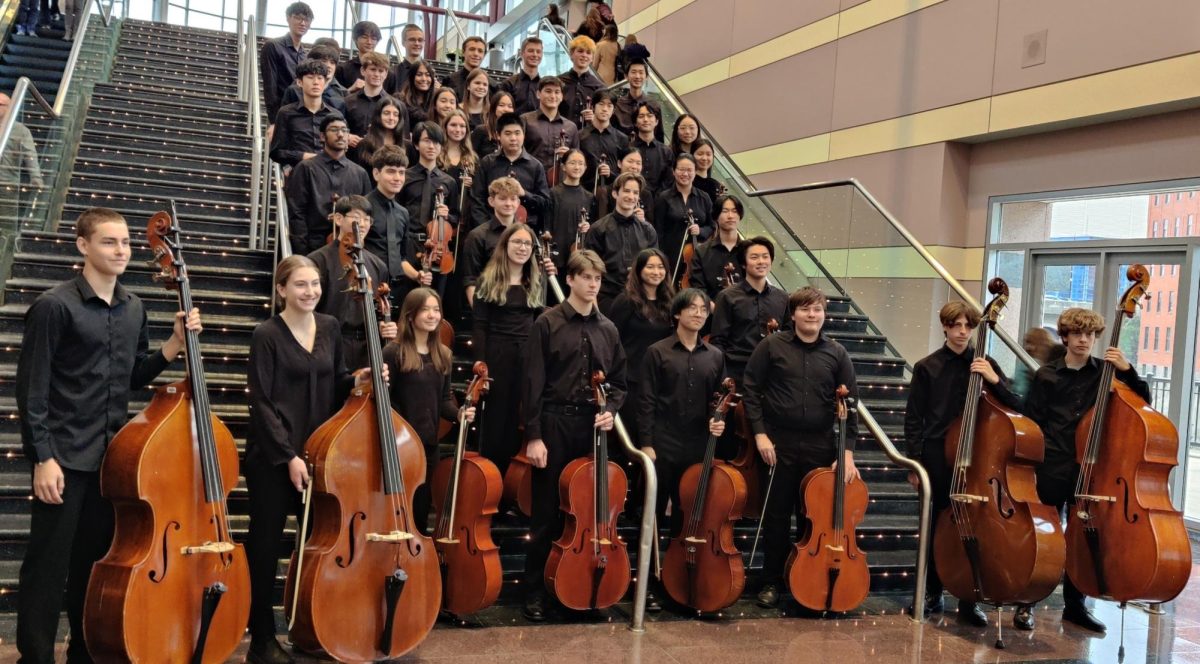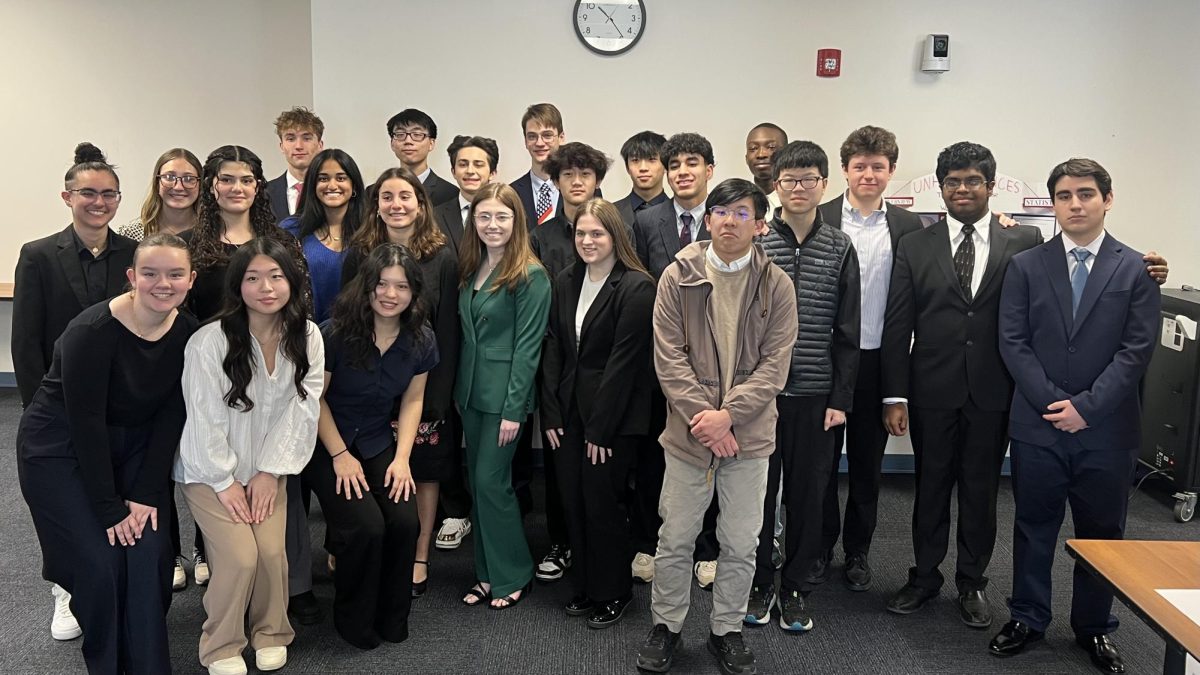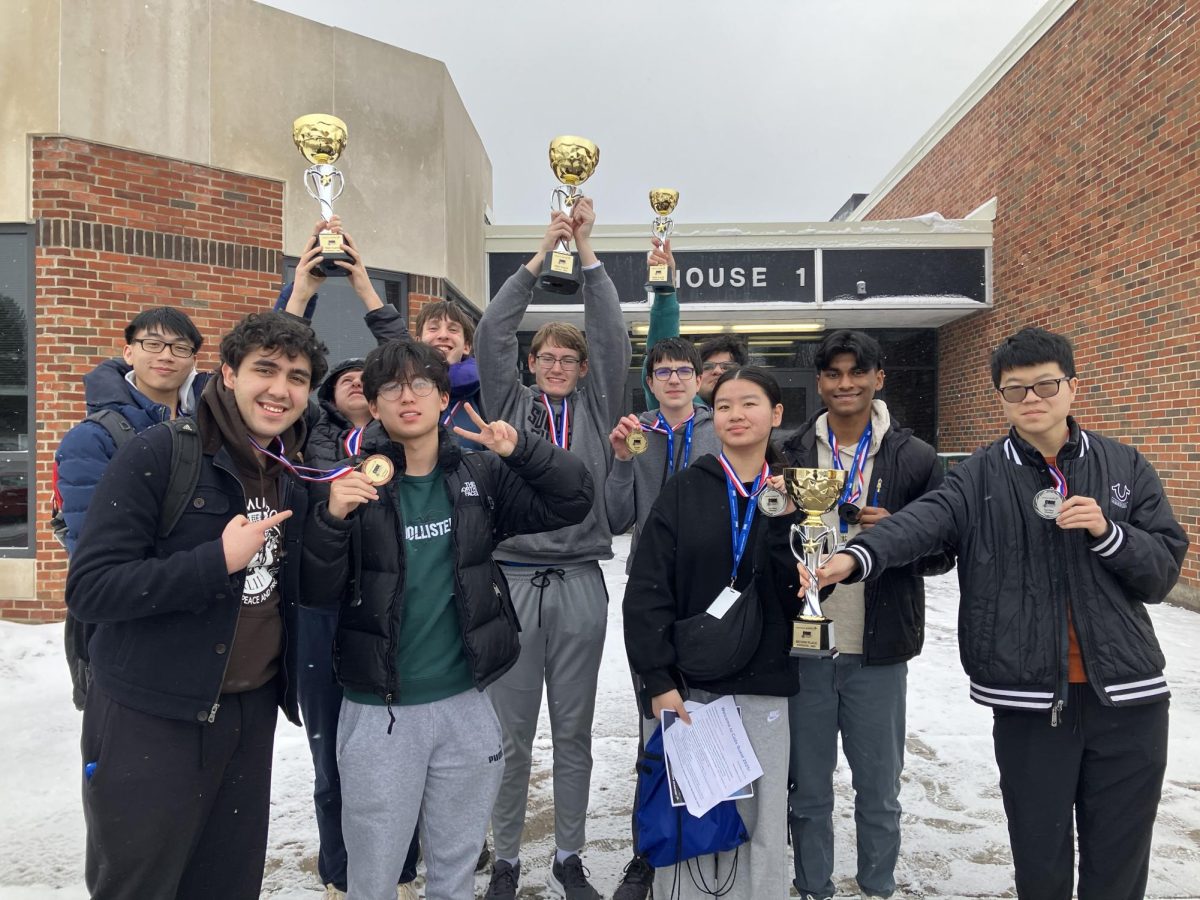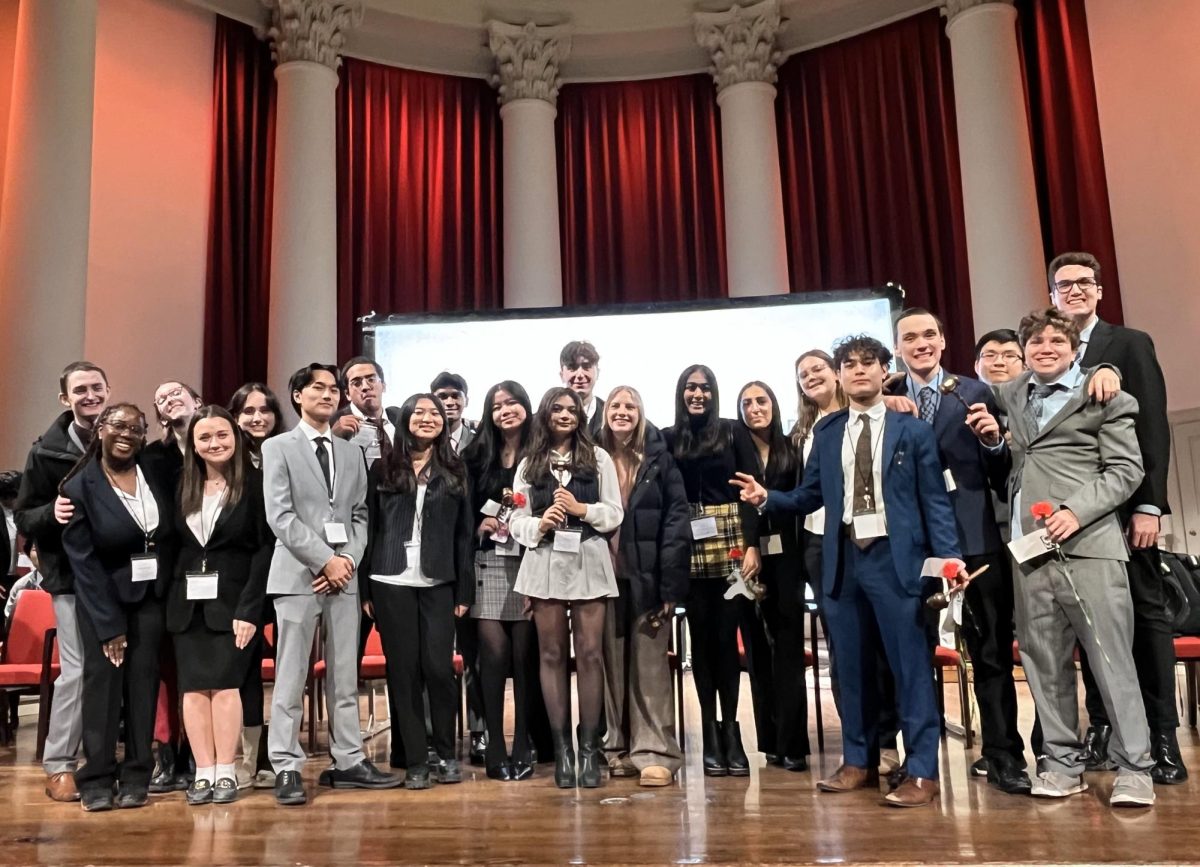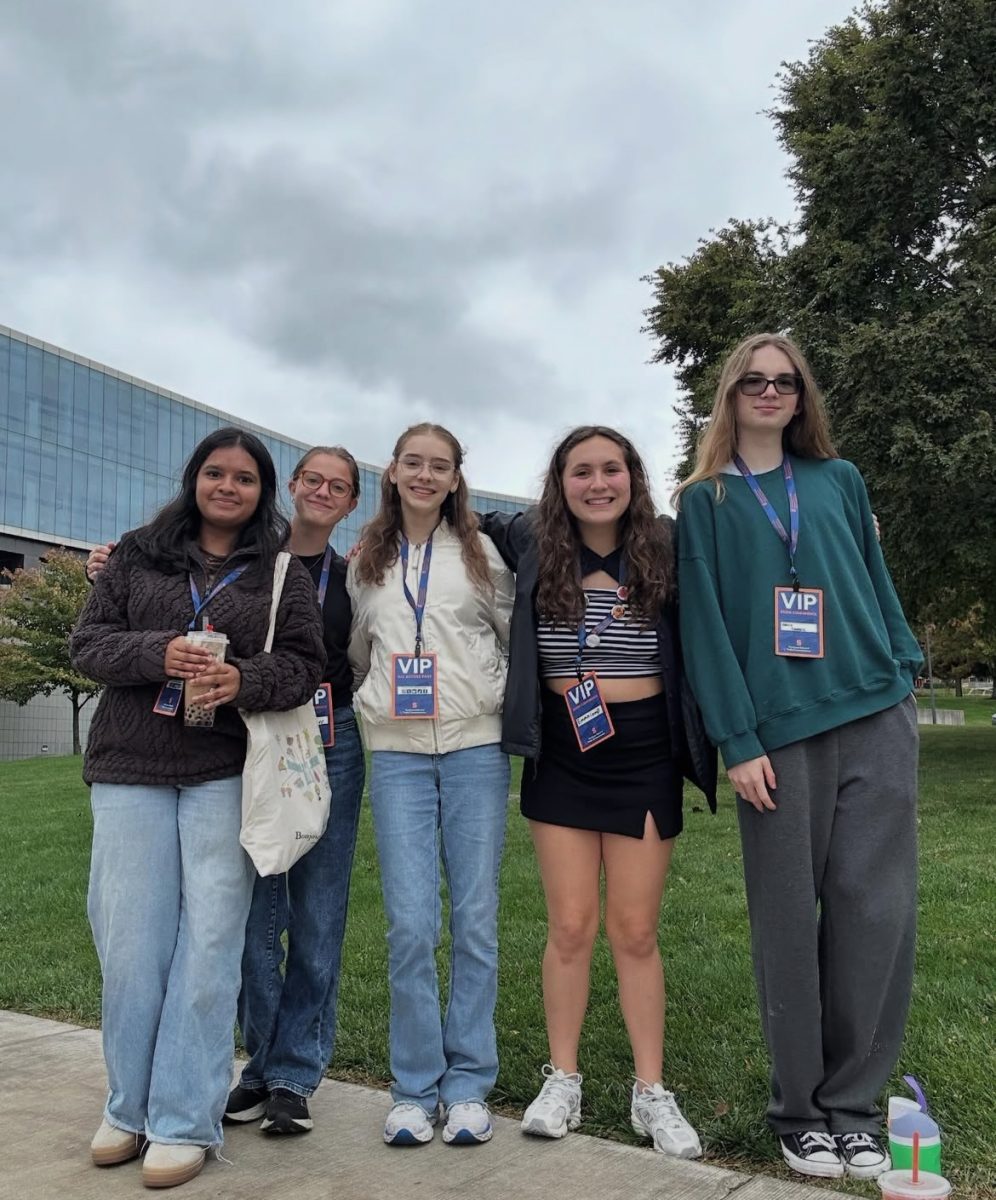It was 5:05 in the morning on Friday, and the alarms of many orchestra students were about to go off, if they had not already. Did they all set them an hour early by accident? Fall back had already happened. Fortunately, for the groggy high schoolers, who were currently still focused on getting quickly out the door, there was a special occasion causing them to miss school.
Mr. Carlos Mendez Jr., director of Freshman Orchestra, Symphony Orchestra, Pit Orchestra, producer of the Musical, co-conductor of Chamber Orchestra, and coach of the Varsity Bowling Team goes far beyond what is asked of him in his job. For great people, there are great moments, and this performance had been in the works for long enough that it should be one of them. Students had been rehearsing the five pieces atypically intensely since the beginning of the school year, and multiple distinguished guests came in to give advice. This included three professors from Crane at SUNY Potsdam, a professor from Eastman and Ithaca College, and Mr. Ronald Hebert, the dad of Mr. Shawn Hebert (the choir director), who previously held Mr. Mendez’s role and is a lecturer at Ithaca College.
By the time students arrived in Rochester, those who were antsy were feeling it wear off, but those who had slept on the bus balanced out the newfound sleepiness of their comrades. After a short warm-up in a sideroom, rehearsal time began, a quick slot back-to-back with the choir performing from Henrietta, New York. The ballroom may have been beautiful, but every student knew they had a major worry, the acoustics. The High School auditorium is designed moderately well for sound amplification, and the ballroom, while it could have been worse, was not. Adjusted or not, at 9:00am, the orchestra plunged into the performance.
Beginning with Christopher Wilson’s “Prelude in G Major,” Mr. Mendez set a slightly slower tempo than usual to reign the group in, and keep up the endurance. The late 19th century composer was with a few lesser known composers of the time who almost mimicked music from 100 years before, but this was purposeful; the goal of the conference was to expose teachers to new music, not drone out “Eine Kleine Nachtmusik” every year. Second, Hovhaness’s “Fugue” from his Psalm and Fugue was one of the longer pieces, but the organ-like quality fit the size of the group nicely, and was, for lack of a better word, pretty to hear.
Thirdly, Sibelius’s Impromptu in B minor required the use of a mute for the entire piece (con sordino, in Italian) and thus had its own quality of sound. Inevitably, (mainly sophomore) students neglected to bring their mutes, but of course, Mr. Mendez was prepared with back-ups. Karlowicz’s “Waltzer” from his Serenade in C Major takes on many different personalities and tempos, and was absolutely the hardest of the selections, at least partially for the reason. Most teachers there could not forget the swinging double bass players, as they got their bodies into the music. An unnamed violinist in the audience murmured “Basses.” with a horizontal shake of the head. The bassist sitting next to her replied, “Yeah. Basses!”
Fuchs’s “Finale Alla Zingarese” from his Serenade No.3 in E minor, was a fast, but not out of control, blitzing end to the thirty minute performance. Lunch was to be at Wegmans afterwards, but no one was thinking about that. The 48 performers had just experienced a successful drive to the finish unparalleled by nearly all activities high school could offer, and it was done.



